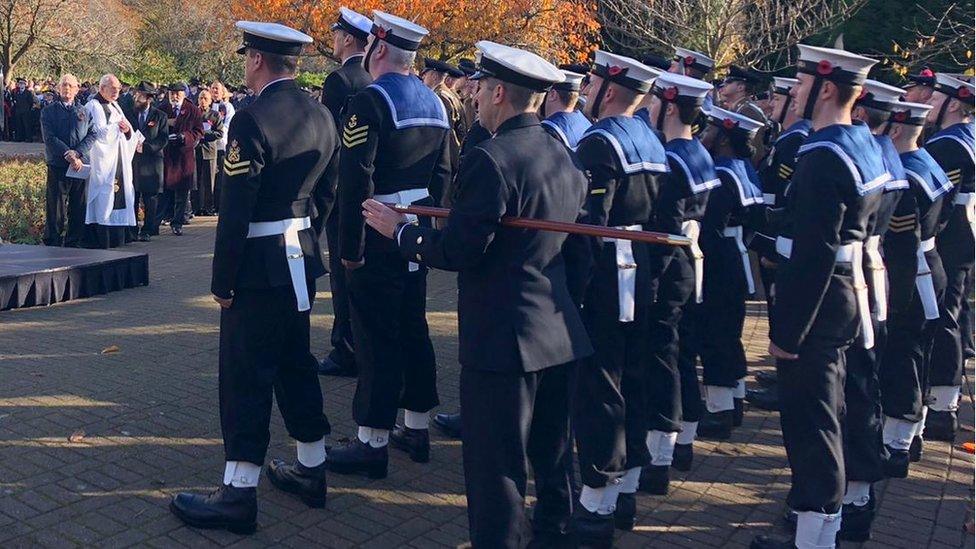Remembrance Sunday: Services across Wales commemorate the fallen
- Published
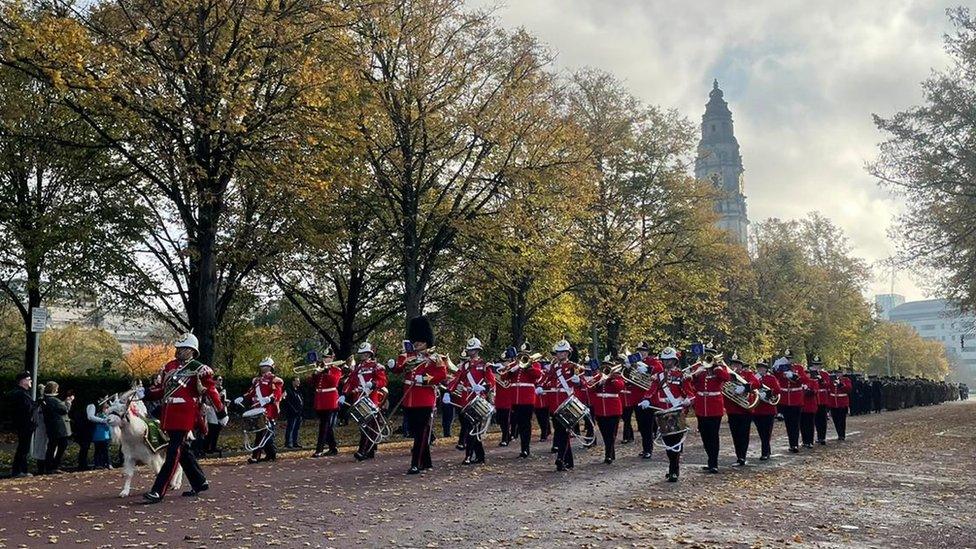
A parade was held in Cardiff prior to a national service at the Welsh National War Memorial
Wales' national remembrance service has been held to commemorate those who lost their lives in conflict.
Armed forces personnel paraded through Cardiff prior to the service at the Welsh National War Memorial in Cathays Park.
They were joined by veterans as well as civic dignitaries and political leaders at Alexandra Gardens.
Other services were held in Bangor, Llandudno, Powys, Swansea, Wrexham and elsewhere.
Detachments from the Royal Navy, Army, RAF, Merchant Navy and cadet forces marched past Cardiff's City Hall and along King Edward VII Avenue en route to the national war memorial.
Cardiff Military Wives Choir and the Cardiff Arms Park Male Voice Choir led the singing during the service.
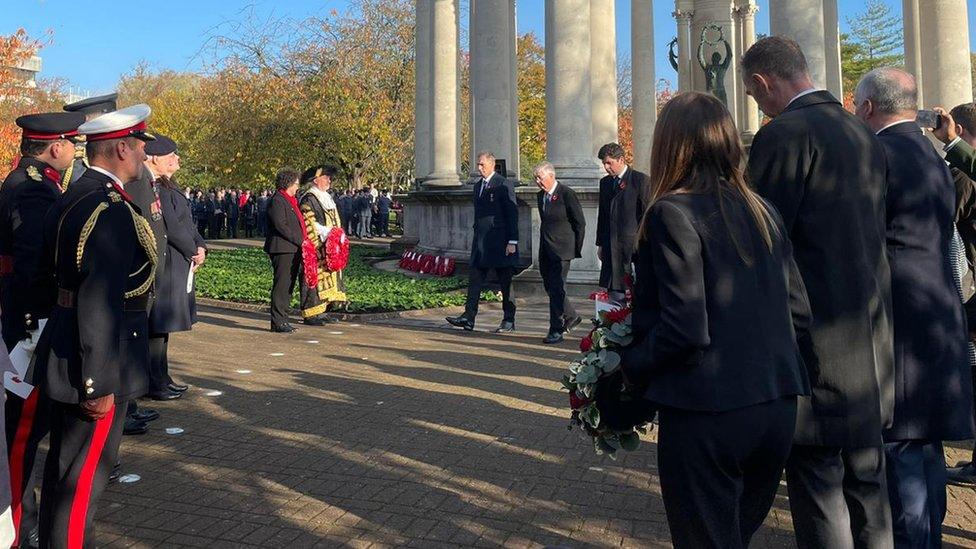
Wales' political leaders attended the ceremony in Cardiff
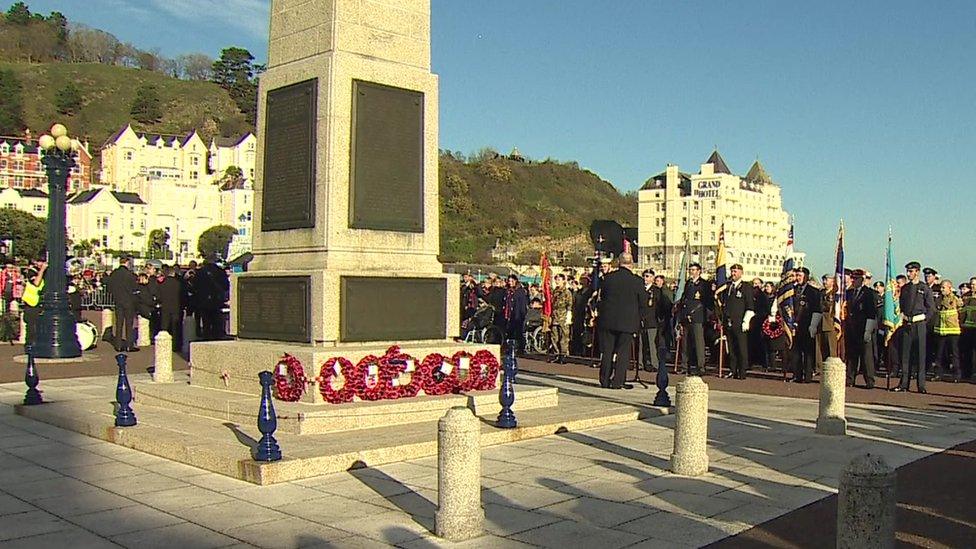
There was a large gathering for a service on Llandudno promenade
At 10:59 GMT, a bugler from The Royal Welsh Regimental Band and Corps of Drums of The Royal Welsh sounded the Last Post.
It was followed at 11:00 by a gun of Regiment Royal Artillery, Newport, marking the start of two minutes' silence.
On Friday, Wales fell silent to mark Armistice Day, the 104th national commemoration since the end of World War One in 1918.
A service and two-minute silence took place at the Field of Remembrance at Cardiff Castle and others at cenotaphs around Wales.
On Sunday, an annual service of remembrance was held at Wrexham's war memorial, external and Swansea Cenotaph, external, among others.
And a service was held at Bangor Cathedral, external in Gwynedd with another at St Mary's Church, external, Hay-on-Wye, Powys, taking place in the afternoon, as well as others elsewhere.
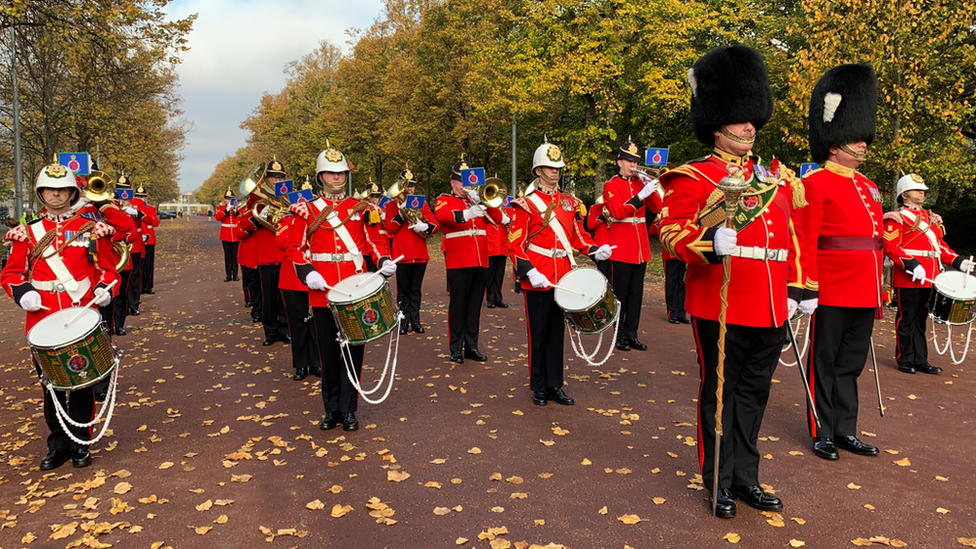
The Royal Welsh Regimental Band and Corps of Drums of The Royal Welsh were involved in the service in Cardiff
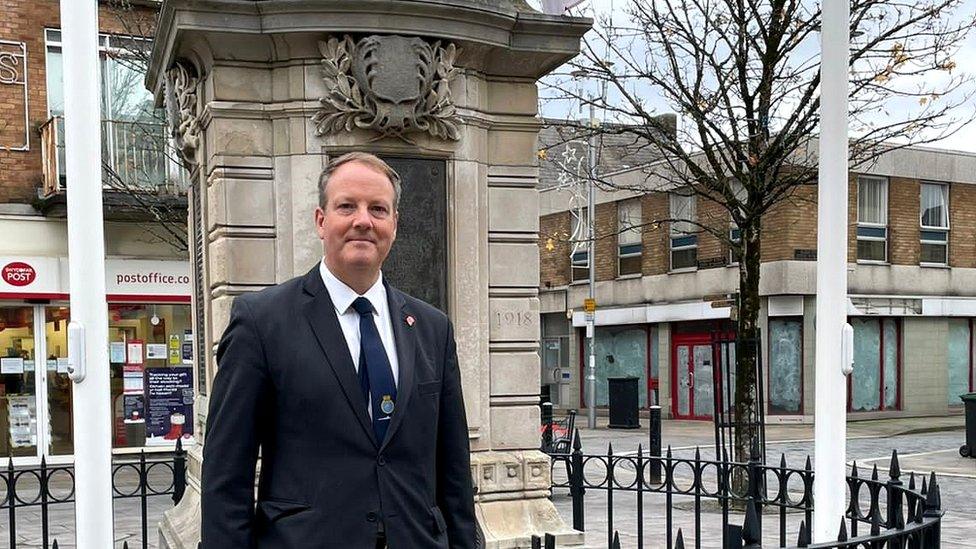
Francis Dickinson's grandfather was the captain of submarine HMS Urge, paid for by the people of Bridgend
Francis Dickinson, 51, was the guest of honour at a service at Bridgend as his grandfather, Lt Cdr Edward Tomkinson, was the captain of submarine HMS Urge, external, paid for by local subscription.
It was sunk by a German mine off Malta during the war and his grandson led efforts to locate it.
The national remembrance service was organised by Cardiff Council and Welsh government with the Royal British Legion.
Related topics
- Published13 November 2022
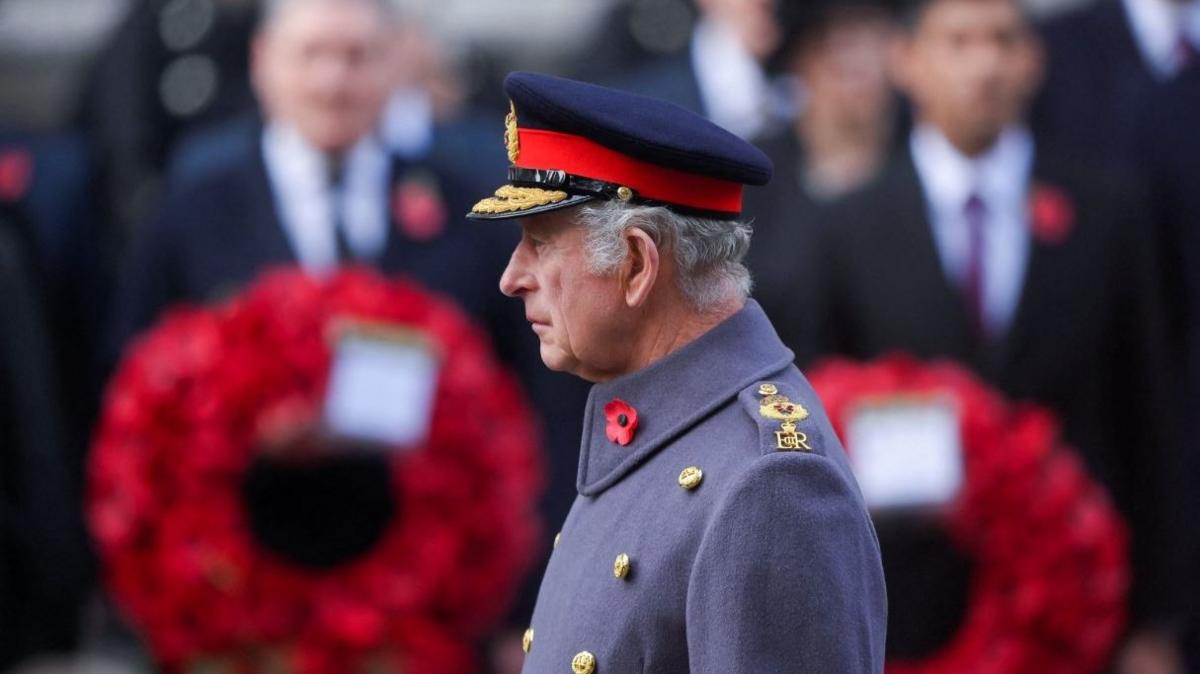
- Published11 November 2022
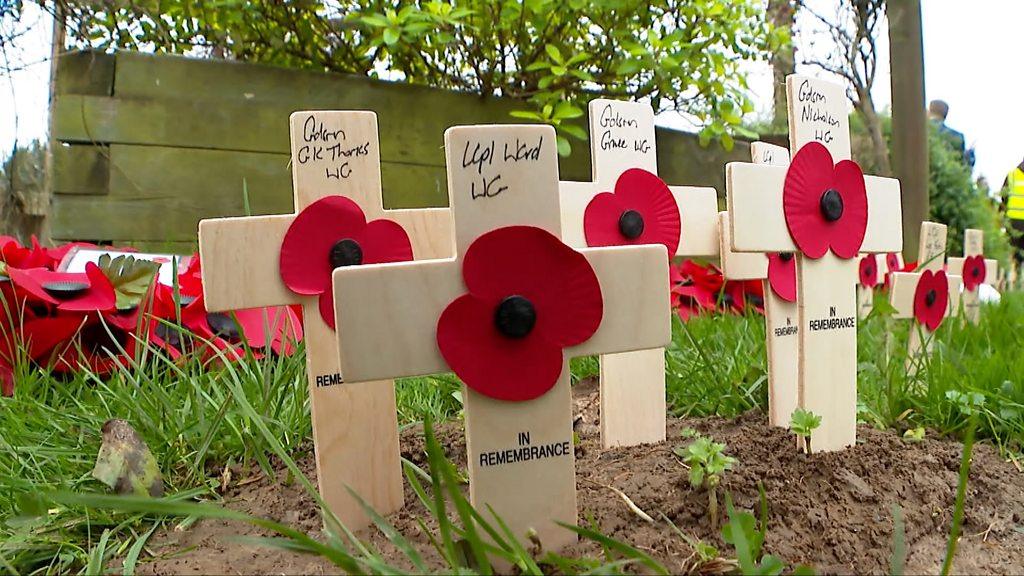
- Published11 November 2022
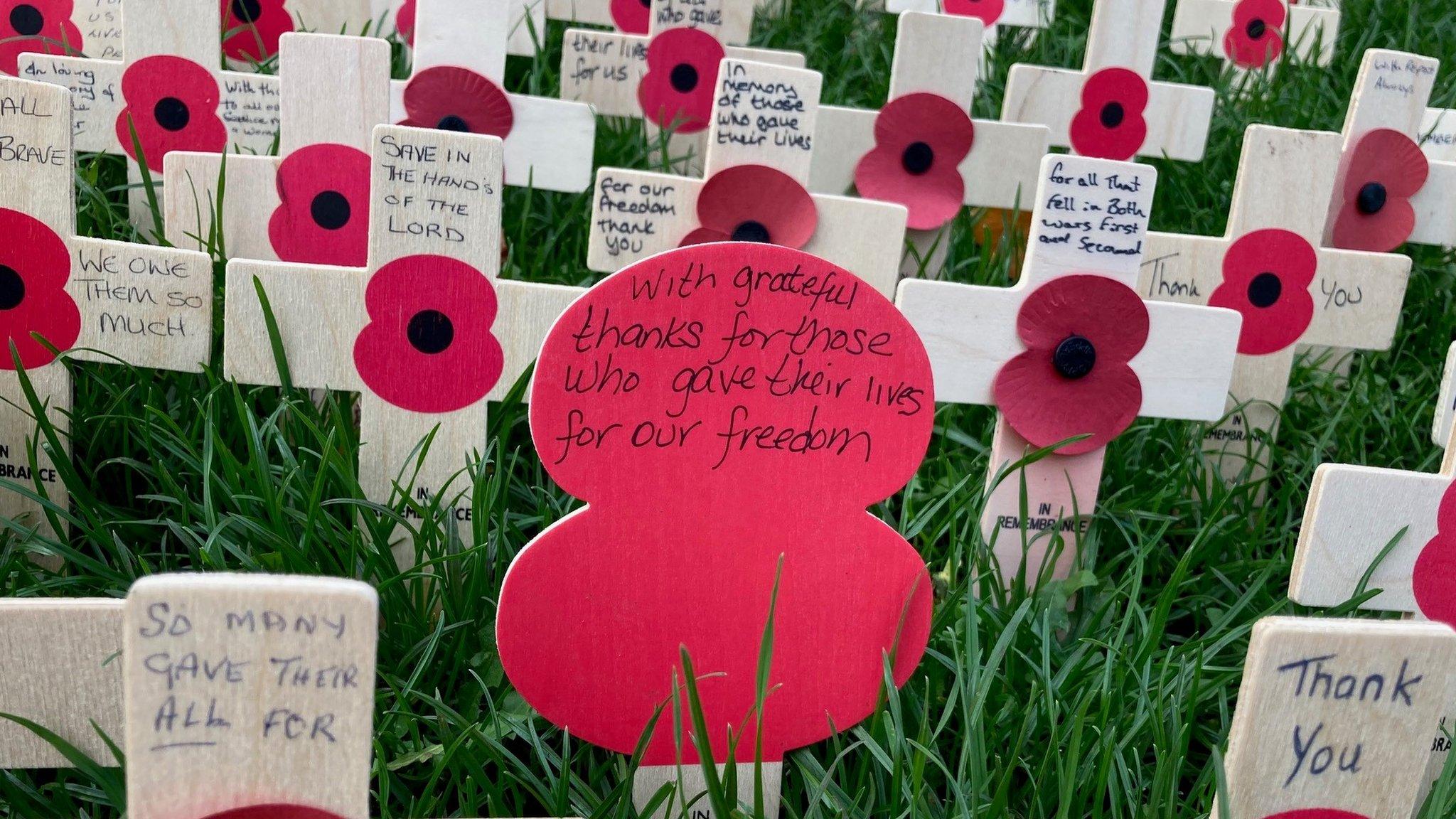
- Published10 November 2019
